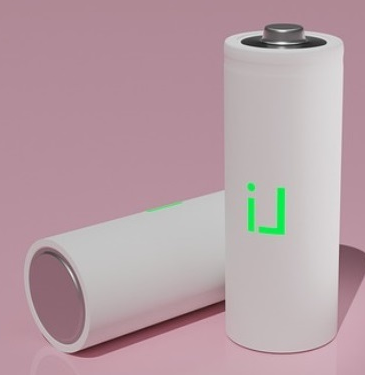Lithium ion cylinder battery is a common lithium battery products, from the use of lithium ion cylinder battery in daily life and industry, transportation, electrical appliances and other aspects have its wide range of application needs, its own advantages, naturally there are some shortcomings, today from the battery technology perspective analysis, About the advantages and disadvantages of cylindrical lithium batteries.
Lithium-ion cylinder battery is a battery technology widely used in various fields, especially in electric vehicles, portable electronic products and energy storage systems have an important role. Lithium-ion cylindrical battery is a kind of battery technology widely used in various fields, which belongs to a kind of lithium-ion battery, and its shape is cylindrical, so it is called cylindrical lithium battery. With its unique shape and superior performance, this battery is playing an increasingly important role in modern electronic equipment, electric vehicles, and energy storage systems. The positive electrode material of lithium-ion cylindrical battery is usually lithium compounds, such as lithium cobaltate, lithium manganate, etc., and the negative electrode uses carbon materials. During the charging process, lithium ions are separated from the positive electrode material, moved to the negative electrode through the electrolyte and embedded in it; When discharged, the lithium ions come out of the negative electrode and return to the positive electrode again. This charge-discharge process allows the battery to be used repeatedly, providing continuous power to the device.

[ Advantages of ]
1, high energy density: Lithium-ion cylindrical batteries have a high energy density, which means that they can store more electrical energy in a relatively small volume and weight, making them ideal for applications where energy requirements are high and space constraints are present.
2, high voltage: Compared with other types of batteries, lithium-ion cylinder batteries operate at a higher voltage, which allows it to provide higher power output under the same conditions.
3, long cycle life: due to the use of advanced materials and processes, lithium-ion cylinder batteries usually have a long cycle life, can be charged and discharged multiple times without significantly reducing performance.
4, no memory effect: Unlike nickel-cadmium batteries, lithium-ion cylinder batteries have no memory effect, which means that users can charge at any time without waiting until the battery is fully discharged.
5, Environmental protection: compared with traditional lead-acid batteries and nickel-cadmium batteries, lithium-ion cylinder batteries have less impact on the environment, do not contain harmful heavy metals, and are easier to recycle and reuse.
[ defects ]
1, the high cost: The production cost of lithium-ion cylindrical battery is relatively high, mainly due to the high-performance materials and complex production processes used.
2, sensitive to charging conditions: lithium-ion cylinder batteries need specific charging conditions, including constant current charging and constant voltage charging two stages to ensure that the battery is fully charged and avoid overcharging. If the charging conditions are not proper, it may lead to reduced battery performance or safety problems.
3, safety issues: in some extreme cases, such as overcharge, overdischarge, high temperature, lithium ion cylinder batteries may occur thermal runaway, resulting in battery fire or explosion. Therefore, strict security measures need to be taken to prevent this from happening.
, so to speak, lithium ion cylindrical battery with high energy density, the advantages of high voltage and long cycle life, widely application in many fields. However, issues such as its high cost and sensitivity to charging conditions also need to be noted in use. With the continuous progress of technology, it is believed that these shortcomings will gradually be overcome, and the performance and safety of lithium-ion cylinder batteries will be further improved. The advantage of lithium-ion cylindrical battery is their high energy density. Thanks to the use of advanced materials and processes, this battery is able to store a large amount of electricity in a small volume, allowing the device to operate for longer periods of time. In addition, lithium-ion cylindrical battery also have good charge-discharge cycle performance, and can still maintain a high level of performance after multiple charge-discharge. In addition to high energy density and good cycle performance, lithium-ion cylindrical battery also have a high operating voltage and a low self-discharge rate. This means that it is able to provide a stable current while reducing energy loss and improving the overall performance of the device.

lithium ion cylindrical battery is a kind of superior performance, wide application of battery technology. With the progress of science and technology and the continuous improvement of the process, it is believed that the performance and safety of this battery will be further improved, bringing more convenience and possibilities to our lives. However, lithium-ion cylindrical battery also have some challenges and limitations. For example, its cost is relatively high, mainly due to the complex process and material costs in the production process. In addition, lithium-ion cylindrical batteries may have safety problems under extreme conditions, such as overheating, fire or explosion, so special attention needs to be paid to safety issues during use.